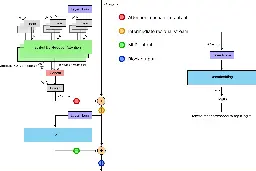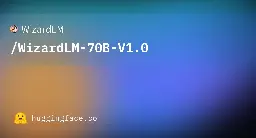Permanently Deleted
noneabove1182 @ noneabove1182 @sh.itjust.works Posts 89Comments 149Joined 2 yr. ago
noneabove1182 @ noneabove1182 @sh.itjust.works
Posts
89
Comments
149
Joined
2 yr. ago
Deleted
Permanently Deleted
Deleted
Permanently Deleted
Deleted
Permanently Deleted
Deleted
Permanently Deleted
A note on the importance of prompt and template formatting - as seen from starcoder
Fine-Tuning Llama-2: A Comprehensive Case Study for Tailoring Models to Unique Applications
GitHub - neuml/txtai: 💡 All-in-one open-source embeddings database for semantic search, LLM orchestration and language model workflows














Didn't do well at rag, but maybe that's because RAG is mostly handled by the wrapper rather than relying on the output of the model, think it'll matter more for langchain/guidance and the example they gave